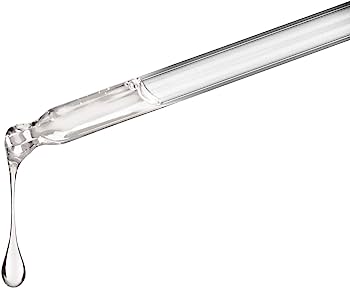Retinol, a powerhouse ingredient in the realm of beauty and skincare, has garnered widespread acclaim for its ability to address various skin concerns and its remarkable anti-aging properties. From improving skin texture to diminishing fine lines, retinol has become a go-to solution for people seeking radiant and youthful complexions.
However, like any of the other product, retinol has a shelf life too, and using it beyond its expiration date can lead to a range of unwanted consequences. In this article, we will delve into the some potential risks and effects of using expired retinol, shedding light on why it is vital to be vigilant about product freshness when incorporating retinol into your skincare routine. Understanding the repercussions of expired retinol will empower you to make informed decisions, ensuring that your quest for radiant, youthful skin is both safe and effective. So, what happens if you use expired retinol? Let’s find out.
What happens if you use expired retinol?

1. Skin sensitivity and irritation
Expired retinol products can lead to increased skin sensitivity and irritation. As the formulation deteriorates, the pH level of the product may change, making it harsher on the skin. Prolonged use of expired retinol may cause burning sensation, peeling, redness, and dryness. If you have sensitive skin, you may experience more pronounced side effects, making it essential to avoid using retinol that is past its prime.
2. Reduced effectiveness
The primary concern with expired retinol is its reduced effectiveness. Over time, retinol can lose its potency, break down, and become less stable. This means that using expired retinol may not provide the same degree of benefits as a fresh one. Users may not experience the desired results, such as diminished wrinkles, reduced acne, or improved skin texture, as the active ingredients may no longer be effective.
3. Acne breakouts
Expired retinol may lose its ability to control acne. Retinol works by regulating sebum production, reducing inflammation, and unclogging pores. As it deteriorates, the ingredients responsible for these actions may become less potent, leading to exacerbating existing blemishes and an increased risk of acne breakouts.
4. Free radicals and oxidation
Exposure to light and air can lead to the retinol oxidation, resulting in the formation of free radicals. Free radicals are unstable molecules and they can damage collagen and skin cells, leading to premature aging. Using expired retinol products may inadvertently expose the skin to an increased number of free radicals, exacerbating the signs of aging rather than fight them.
5. Bacterial growth and contamination
Using expired retinol increases the risk of bacterial growth and contamination. Over time, exposure to air and bacteria may occur as the retinol product’s preservatives lose their efficacy. Applying contaminated retinol to the skin can lead to exacerbate acne, infections, and further irritate sensitive skin.
6. Allergic reactions
Especially in individuals with reactive or sensitive skin, expired retinol can trigger allergic reactions. As the product ages, chemical composition of retinol may change, leading to new compounds that the skin may not tolerate well. Allergic reactions may manifest as swelling, redness, hives, and itching. In some severe cases, it could cause contact dermatitis, requiring medical attention.
7. Long-term damage
Consistent use of expired retinol product may lead to long-term damage to the skin’s protective barrier. The skin barrier plays a vital role in protecting against environmental aggressors and maintaining hydration. Expired retinol’s potential to disrupt this barrier can result in heightened sensitivity, increased moisture loss, and a compromised skin defense system.
Conclusion
In conclusion, using expired retinol product is not advisable due to the potential risks it poses to the skin. The reduced effectiveness, acne breakouts, increased sensitivity, skin irritation, and possible allergic reactions all highlight the importance of proper storage guidelines and adhering to expiration dates. To ensure the maintain skin health and the best possible results, it is crucial to use fresh retinol products and store them correctly, away from extreme temperatures and light. If you experience any uncertainty regarding a product’s condition or adverse effects, consult a skincare professional or dermatologist for recommendations and guidance. Remember, healthy and proper skin care practices involve making informed choices and understanding product lifespans to protect and nurture your skin effectively.


